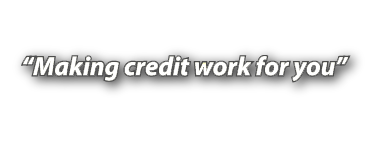Adam Thierer, in an eye-opening piece written nearly five years ago, had carefully analysed the impact of “Regulatory Capture” in an article entitled “Regulatory Capture: What the Experts Have Found.” The sentiments expressed in that article certainly do resonate with me even today.
In the said article, the author notes: ““Regulatory capture” occurs when special interests co-opt policymakers or political bodies—regulatory agencies, in particular—to further their own ends. Capture theory is closely related to the “rent-seeking” and “political failure” theories developed by the public choice school of economics. Another term for regulatory capture is “client politics,” which according to James Q. Wilson, “occurs when most or all of the benefits of a program go to some single, reasonably small interest (and industry, profession, or locality) but most or all of the costs will be borne by a large number of people…Because regulatory capture theory conflicts mightily with romanticized notions of “independent” regulatory agencies or “scientific” bureaucracy, it often evokes a visceral reaction and a fair bit of denialism…Yet, countless studies have shown that regulatory capture has been at work in various arenas: transportation and telecommunications; energy and environmental policy; farming and financial services; and many others.”
But why have I shown special interest in Thierer’s article? The answer may very well surprise you. The Eastern Caribbean Central Bank (ECCB) has introduced a new Harmonised Credit Reporting Bill and Regulations which it is tabling in parliaments across the region and will initiate the regulatory and supervisory framework for the creation of a credit bureau within the Eastern Caribbean Currency Union (ECCU).
In most developed countries, credit reporting agencies or bureaus exist in order to share information on bad borrowers and that is all well and good provided that the framework within which these agencies function is properly conceptualised, implemented, and supervised. A careful review of the proposed Act brings me to a simple conclusion: This ECCB proposed framework is going well beyond the normal standards associated with credit reporting. It’s now becoming the Big Brother. Here are some key highlights:
First, the Bill requires all financial institutions not only to report on bad paying clients (which is reasonable) but to also provide “positive information” which is defined as “any positive or negative information bearing on the data subject’s credit worthiness, credit standing, credit capacity, character, general reputation, personal characteristics or mode of living including, but not limited to, the history or profile of the data subject with regard to credit, assets or financial obligations.”
Second, under this all-encompassing criteria, every piece of information whether it is relevant or not to establishing your credit worthiness must be reported to the new Big Brother. As if not enough, the ECCB made it very clear in the draft that it will likely offer a license only to a single reporting agency which, ironically, can be owned by the banks. Without any regard to basic principles of “conflict of interest”, we are creating a monstrous Big Brother. All it would take is one data breach and you can guess the implication there.
Third, what does this mean for the common person? Simply put, your character and reputation will now be subjected to the interrogation of a loan officer, who is likely, as human nature dictates, to be influenced in his/her credit decision by totally irrelevant information. The likely outcome is simple: at times of such great difficulty in accessing loans from banks, the new bureau will make it far easier for banks to decline more loans for no good reason. And the economic result? Halting any hope of economic activity!
Fourth, the ECCB has stretched beyond the imagination every bit of rational thinking on this matter and is creating a Big Brother to monitor our “reputation” and “personal characteristics” and so even our “mode of living” will now become the banks’ business. Shouldn’t the EECB be focusing more on working with banks to ease lending conditions at a time in our economic history when small businesses are suffocating, rather than making it more difficult for all and sundry to borrow?
While reflecting on this new Bill proposed by the ECCB and the unintended negative consequences for individual and corporate borrowers in the ECCU, Thierer’s article once again springs to mind. Thierer alluded to a famous saying associated with distinguished economist, Ronald Coase, that: “the extent to which pressure is brought to bear on the [FCC] by politicians and businessmen, that this should be happening is hardly surprising…When rights, worth millions of dollars, are awarded to one businessman and denied to others, it is no wonder if some applicants become overanxious and attempt to use whatever influence they have (political and otherwise), particularly as they can never be sure what pressure the other applicants may be exerting.”
My question, therefore, to the ECCB in relation to this new Bill is: Are you acting independently or are you wielding to pressure? If the answer to the latter is in the affirmative, may I respectfully ask: pressure from whom?
Like so many other critical things in the region, this new Bill suggests once again that it’s time for the public to raise their voices on important national issues. It is every person’s right to know what is being proposed and how the information gathered by banks will be used. Furthermore, each government in the ECCU should engage in an open dialogue with the public prior to debating and proposing such far reaching legislation. The time is now!
(Dr. Francis is a Senior Lecturer in the Department of Economics at the University of the West Indies, Cave Hill Campus, P.O. Box 64, Bridgetown, Barbados. You can email Dr. Francis at brian.francis@cavehill.uwi.edu or call Telephone Work: (246) 417-4276/4279 Fax Work: (246) 438-9104.)



